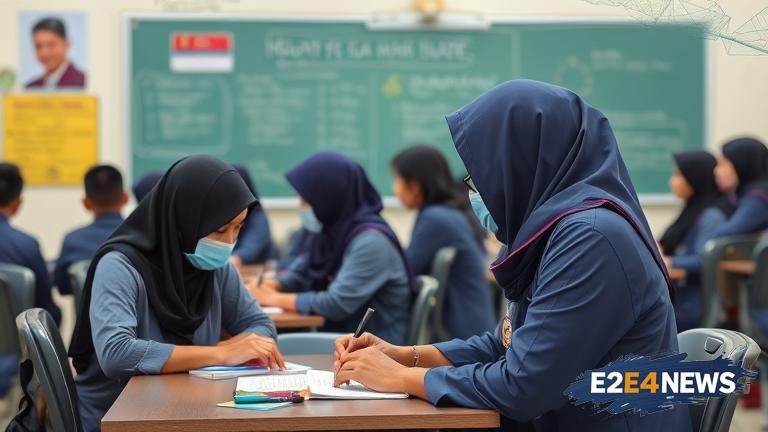The Malaysian government has announced that teachers who decline their initial placement may face disciplinary action. This decision has sparked controversy among teachers and educators in the country. Deputy Education Minister Fadhlina Sidik stated that teachers who refuse their first placement will be subject to disciplinary action, as per the Education Act 1996. The minister emphasized that teachers have a responsibility to serve the country and should not refuse their postings. The decision is aimed at ensuring that all schools, particularly those in rural areas, have an adequate number of teachers. However, teachers’ unions have expressed concerns over the decision, citing issues such as lack of infrastructure and resources in rural schools. They argue that teachers should not be forced to work in areas with inadequate facilities and support. The Malaysian government has been working to improve the education system, including increasing the number of teachers in rural areas. Despite these efforts, many schools in rural areas still face challenges in attracting and retaining teachers. The decision to take disciplinary action against teachers who decline their initial placement has been met with criticism from some quarters. Teachers argue that they should have the right to choose their postings, taking into account factors such as family and personal circumstances. The government, however, maintains that teachers have a duty to serve the country and should not prioritize their personal interests. The issue has sparked a debate over the role of teachers in the education system and the challenges they face. Some have argued that the government should focus on improving the working conditions and benefits of teachers, rather than taking disciplinary action against them. Others have suggested that the government should consider alternative solutions, such as providing incentives for teachers to work in rural areas. The decision is expected to have significant implications for the education system in Malaysia, particularly in rural areas. It remains to be seen how the situation will unfold and whether the government will reconsider its decision. In the meantime, teachers and educators are bracing themselves for the potential consequences of declining their initial placement. The Malaysian government has reiterated its commitment to improving the education system, but the decision has raised concerns over the welfare and rights of teachers. As the situation continues to unfold, it is likely that there will be further developments and reactions from teachers, educators, and the government. The decision has also sparked concerns over the potential impact on student learning outcomes, particularly in rural areas. If teachers are forced to work in areas with inadequate facilities and support, it could have negative consequences for student achievement. The government must carefully consider the potential consequences of its decision and work to find solutions that balance the needs of teachers, students, and the education system as a whole. Ultimately, the goal should be to ensure that all students have access to quality education, regardless of their location or background. The decision to take disciplinary action against teachers who decline their initial placement is a complex issue that requires careful consideration and consultation with all stakeholders. It is essential that the government works to find solutions that prioritize the welfare and rights of teachers, while also ensuring that the education system meets the needs of all students. By doing so, Malaysia can work towards creating a more equitable and effective education system that benefits everyone. The government’s decision has also raised questions over the role of teachers’ unions and their ability to represent the interests of teachers. Teachers’ unions have been vocal in their criticism of the decision, arguing that it undermines the rights and welfare of teachers. The government must work to engage with teachers’ unions and other stakeholders to find solutions that address the concerns of all parties. This includes providing support and resources for teachers, as well as working to improve the overall quality of the education system. In conclusion, the decision to take disciplinary action against teachers who decline their initial placement is a complex and contentious issue that requires careful consideration and consultation with all stakeholders. The government must work to find solutions that balance the needs of teachers, students, and the education system as a whole, while also prioritizing the welfare and rights of teachers.





